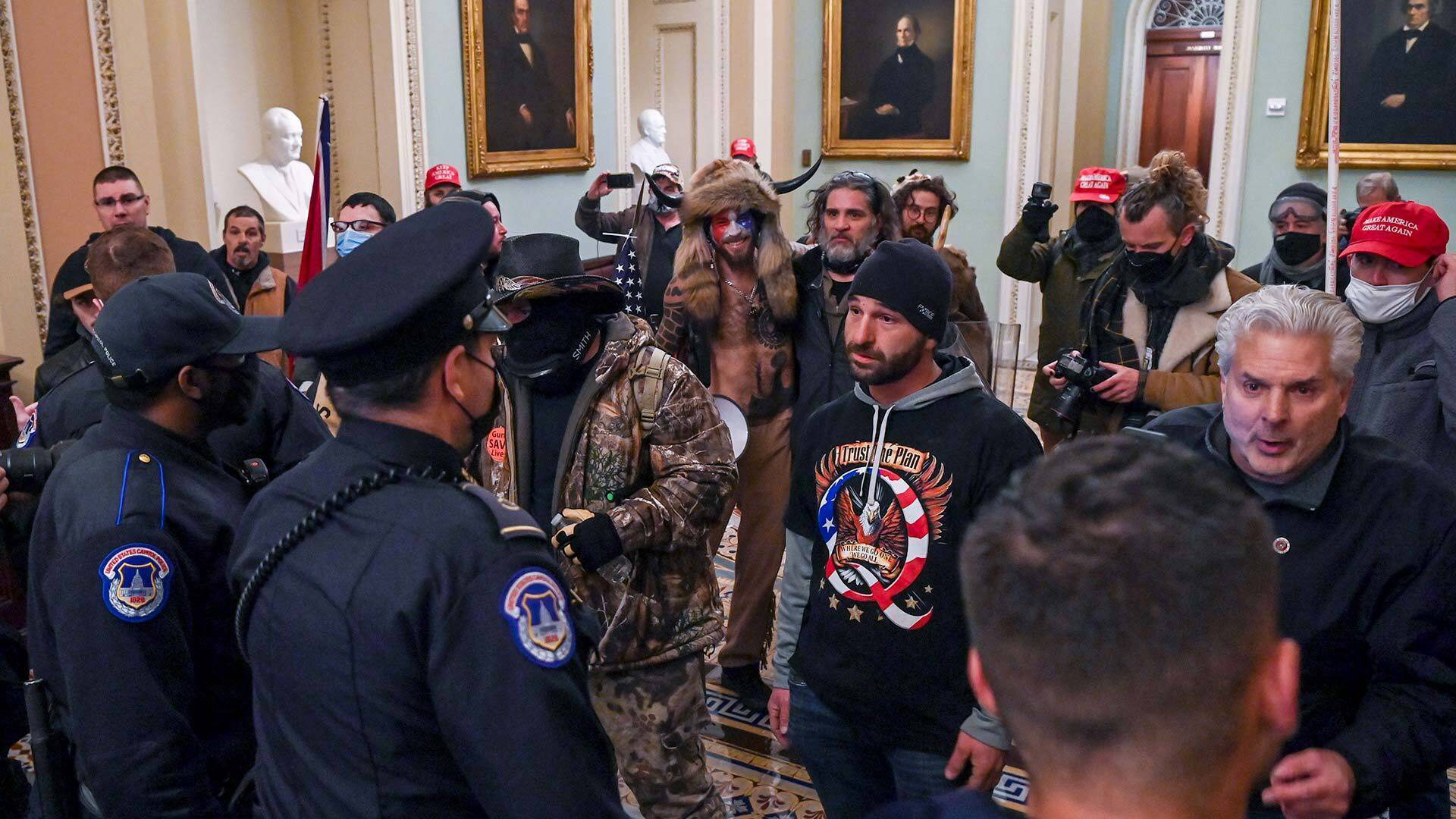- March 03, 2021
- By Sara Gavin
While the far-right conspiracy theory known as QAnon rapidly escalated from an obscure fringe group to a mainstream movement with millions of followers, only a relative handful so far have been motivated to commit crimes on behalf of the cause, finds new UMD research.
Researchers from the National Consortium for the Study of Terrorism and Responses to Terrorism (START) at the University of Maryland compiled comprehensive data on QAnon supporters who have been charged with criminal offenses in the United States to date—61 in total, including 31 participants in the U.S. Capitol riot on Jan. 6.
“We know movements like QAnon have what we call a low base rate of offense, which means far more people support the views than are actually going to mobilize to do something criminal,” said Michael Jensen, a senior researcher at START who led the QAnon project. “But just because people aren’t committing a lot of crimes connected to this movement, doesn’t mean it’s not harmful.”
The QAnon study was compiled from the Profiles of Individual Radicalization in the United States (PIRUS) database created at START in 2013. Researchers started tracking crimes related to QAnon after the movement exploded online in 2020 and became regular fodder in the news media, particularly after former President Donald Trump retweeted multiple posts from accounts connected to the conspiracy theory.
Among their findings, researchers discovered that mental health concerns and past trauma were common among QAnon supporters compelled to commit crimes. In addition to the subjects who participated in the Capitol insurrection, 32 QAnon followers have been arrested since 2016 (including two followers of the PizzaGate conspiracy—a precursor to QAnon). Of those 32 subjects, more than two-thirds (68%) had documented mental health concerns, according to court records and other public sources. Meanwhile, 44% were radicalized after experiencing a traumatic event such as physical, emotional or sexual abuse, or post-traumatic stress disorder from military service.
While some extremists radicalize over extended periods of time, the data on QAnon offenders indicate that the majority did so in less than a year, and some in mere weeks. Researchers say the isolation many were experiencing during the COVID-19 pandemic provided ripe conditions for recruiting millions online.
“Conspiracy theories can be really attractive during uncertain times when people are vulnerable because they play into human tendencies to find someone to blame,” said Sheehan Kane, the data collection manager for PIRUS. “The movement has done a good job of capitalizing on technology and turned into more of an umbrella conspiracy theory which brought a bunch of concerns together and created this common enemy—liberal elites.”
START researchers expect QAnon to experience a period of significant disengagement in the coming months. Social media platforms are cracking down on its efforts to spread unfounded claims. For example, in August, Facebook took down more than 9,000 QAnon groups with as many as 3 million members. Trump—whom movement conspiracy theories cast as the nation’s “savior” from a ring of liberal pedophiles and cannibals—lost his re-election bid and has also been largely silenced on social media. Meanwhile, as restrictions related to the COVID-19 pandemic ease, researchers say such groups will have a harder time exerting their influence.
“When individuals have competing loyalties and other things to spend time on—when they can’t spend 16 hours a day on a QAnon chat, for example—that will have an effect on all extremist movements,” Jensen said. “Netflix won’t be the only one losing viewers.”
Topics
Research